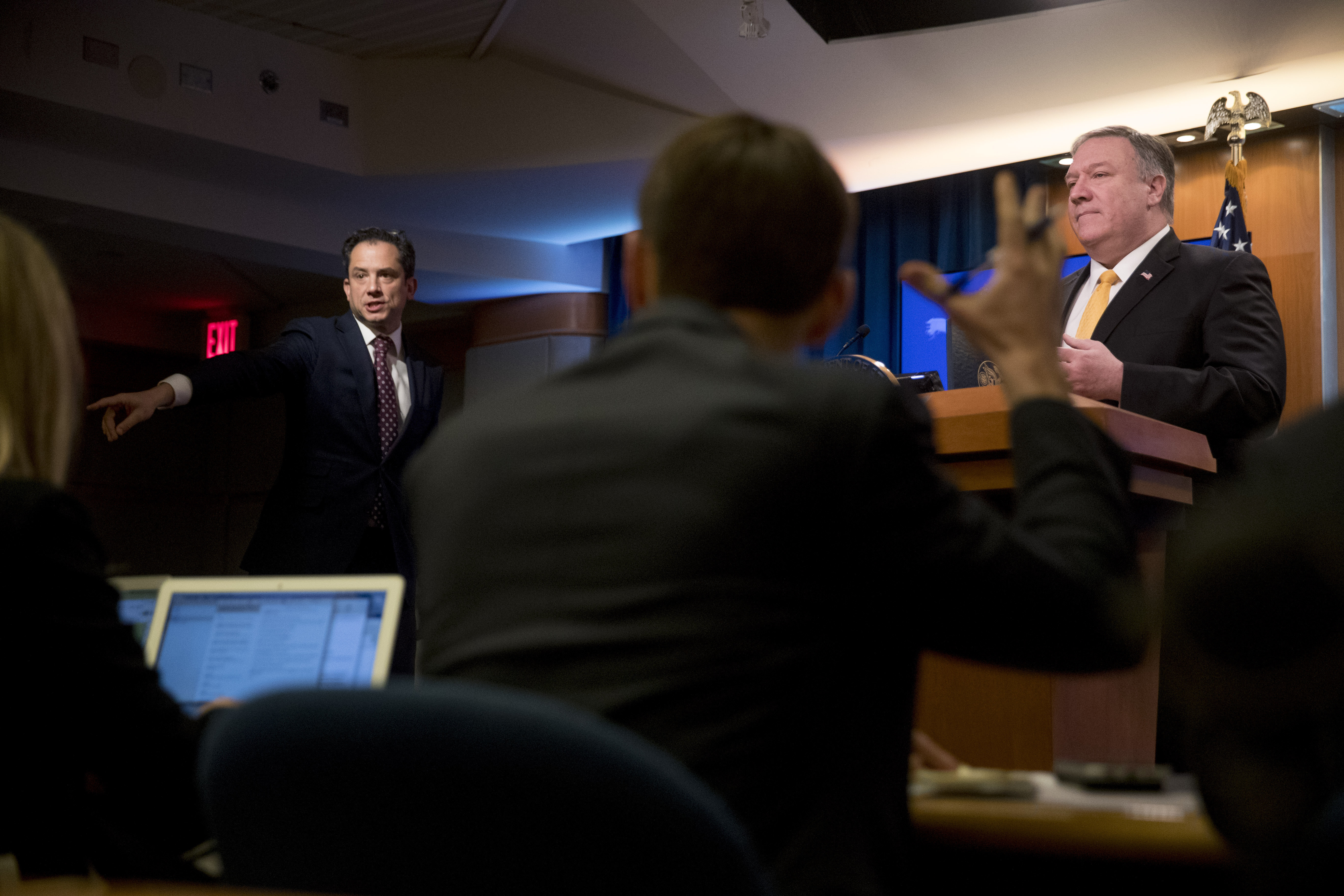The Trump administration is pulling the plug on a decades-old nuclear arms treaty with Russia, lifting what it sees as unreasonable constraints on competing with a resurgent Russia and a more assertive China.
The move announced on Friday sets the stage for delicate talks with US allies over potential new American missile deployments.
In explaining his decision, which he had foreshadowed months ago, President Donald Trump accused Moscow of violating the 1987 Intermediate-Range Nuclear Forces treaty with 'impunity' by deploying banned missiles. Moscow denies it is in violation and has accused Washington of resisting its efforts to resolve the dispute.
Democrats in Congress and some arms control advocates criticised Trump's decision as opening the door to an arms race.
'The US threat to terminate the treaty will not bring Russia back into compliance and could unleash a dangerous and costly new missile competition between the United States and Russia in Europe and beyond,' the private Arms Control Association said. It argued that Washington had not exhausted options for drawing Russia back into compliance.
Trump said in a statement that the US will 'move forward' with developing its own military response options to Russia's banned deployment of cruise missiles that could target western Europe.
'We cannot be the only country in the world unilaterally bound by this treaty, or any other,' Trump said. Other officials said the treaty could still be saved if Russia reverses course and returns to compliance, but that window of opportunity will close in six months when the American withdrawal is due to take effect.
The Trump decision reflects his administration's view that the arms treaty was an unacceptable obstacle to more forcefully confronting not only Russia but also China. China's military has grown mightily since the treaty was signed, and the pact has prevented the US from deploying weapons to counter some of those being developed in Beijing.
Leaving the INF pact, however, risks aggravating relations with European allies, who share the administration's view that Russia is violating the treaty but who have not endorsed a US withdrawal.
Secretary of State Mike Pompeo, speaking to reporters after Trump's statement, said Russia will be formally notified on Saturday that the US is withdrawing from the treaty, effective in six months.
In the meantime, starting Saturday, the US will suspend its obligations under the treaty.
Pompeo said that if, in the coming six months, Russia accepts US demands that it verifiably destroy the cruise missiles that Washington claims are a violation, then the treaty can be saved. If it does not, 'the treaty terminates,' he said.
INF was the first arms control measure to ban an entire class of weapons: ground-launched cruise missiles with a range between 500 km (310 miles) and 5,500 km (3,400 miles). At the time, in the late stages of the Cold War, the US and its allies were mainly concerned by the perceived threat of Russian medium-range nuclear missiles that were targetted at Europe. The US deployed similar missiles in response, in the 1980s, leading to negotiations that produced the INF treaty.
Leaving the treaty would allow the Trump administration to counter the Chinese, but it's unclear how it would do that. US security concerns are complicated by what US intelligence officials earlier this week called efforts by China and Russia to expand their global influence, particularly in Asia and the Middle East. 'China and Russia are more aligned than at any point since the mid-1950s, and the relationship is likely to strengthen in the coming years as some of their interests and threat perceptions converge,' Director of National Intelligence Dan Coats said in testimony Tuesday to Congress.











